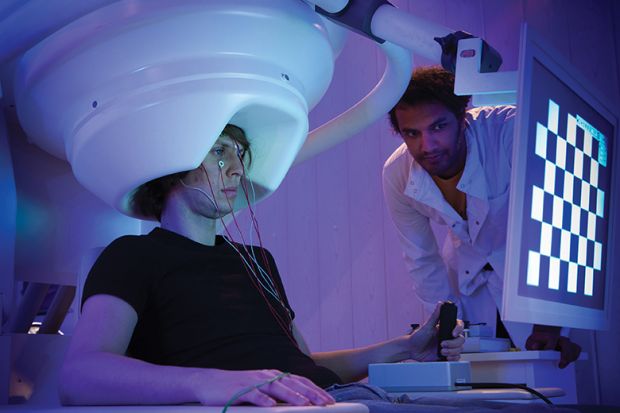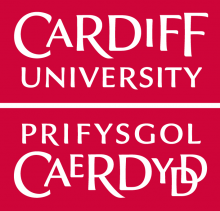Bringing researchers under the same roof is as important as ever for generating new ideas and fresh avenues of research despite the advance of online collaboration, the head of the world’s first “social sciences research park” has insisted.
When Cardiff University unveiled its plans for a social sciences “superlab” as part of its £300 million regeneration of a former industrial site in the city’s Cathays area in 2013, the idea of co-locating 12 social science groups was difficult to argue with; the cluster would attract industry and policy organisations keen to work with social scientists whose skills could also benefit university spin-offs and student start-ups based on the Cardiff Innovation Campus.
However, the rise of remote working during the pandemic has disrupted the traditional business model of university science parks – and office life in general – with many researchers continuing to work successfully from home long after Covid restrictions have been lifted.
Chris Taylor, director of the Social Sciences Research Park (Spark), which opened its doors earlier this month, told Times Higher Education that the need to bring researchers together remained vital.
“Research can be done online – and researchers had some success in the pandemic – but you do not get the same creativity and innovation,” explained Professor Taylor. “There is pretty strong evidence that, for the social sciences, developing new ideas requires a degree of communication that you don’t get with online alone.”
He pointed to a sharp fall in grant applications in his discipline during the pandemic, with bids to the Economic and Social Research Council falling by almost 20 per cent in 2020-21. “The bids have just not been forthcoming,” said Professor Taylor.
The disruption of in-person office working may help efforts to bring research-focused companies into Spark, which already houses thinktanks Nesta and the Institute of Welsh Affairs, and the fintech company Bipsync. “Hybrid working means companies don’t need so much space, so some companies are looking to downsize from large premises and want to get a better quality environment linked to the university,” said Professor Taylor, whose centre will eventually house up to 800 people.
Consolidating research centres focused on children and young people, civil society, crime and security may also improve Cardiff’s chances of winning more research funding, which would help it retain researchers on longer-term contracts, added Professor Taylor.
“In the medical sciences you might have a lab running for decades – for a social sciences lab to run for five years is almost unheard of,” said Professor Taylor. “If we can put some groups together, we can get some significant funding at scale; we can use that to employ staff on longer-term contracts,” he said, adding: “At the moment, it’s hard to invest in researchers and, for them, to invest in us, but if we change that, then we can begin to retain some really high-quality people.”
While the financial returns from social-science-based companies or research are not likely to be in the same league as those from the life, medical or computer sciences, Cardiff’s investment will pay off, believed Professor Taylor.
“It’s a gamble but we are fairly confident that we can bring together research revenues and companies to create a really vibrant research environment,” he said.
POSTSCRIPT:
Print headline: Social sciences hub aims to boost collaboration
Register to continue
Why register?
- Registration is free and only takes a moment
- Once registered, you can read 3 articles a month
- Sign up for our newsletter
Subscribe
Or subscribe for unlimited access to:
- Unlimited access to news, views, insights & reviews
- Digital editions
- Digital access to THE’s university and college rankings analysis
Already registered or a current subscriber? Login










